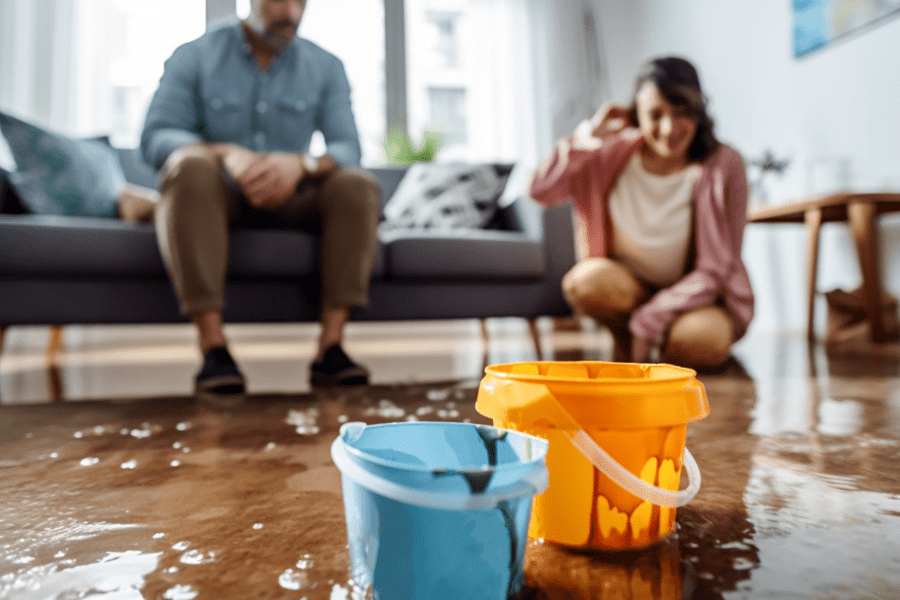Home maintenance advice
Is Home Emergency cover worth it?
09 Jan 2023 • 6 minutes


Home emergency cover helps you avoid being hit with the cost of call-out fees, labour and parts if you need urgent repairs at your property.
In this article, we’ll look at what’s classed as an emergency, the costs involved, and find out if it’s worth paying for home emergency cover.
A home emergency insurance policy covers your expenses for fixing urgent issues in your home, like an electrical failure or your boiler breaking down.
When you make a claim, the insurer sends out an approved engineer or plumber as quickly as possible to fix the issue, and they cover the bill for labour, parts and materials, up to an agreed maximum cost.
If your home is unsafe to stay in while the problem is fixed, your insurance may also cover overnight accommodation for you and your family. This is typically at a cost agreed within the policy.
No, Home Emergency Cover and a standard home insurance policy are not the same.
In short, Home Emergency Cover is a type of insurance that covers the cost of calling out an engineer when you experience an emergency. Whether it’s a boiler breakdown or a problem with your electrics, you’re covered if something goes wrong.
A standard home insurance policy covers the cost of repairing the damage caused by the incident or replacing belongings. However, your home insurance policy wouldn’t generally cover the call-out of a qualified engineer in an emergency. Normally this would be something you would have to find and pay for in this situation, which can be costly.
It is possible that you can have a level of emergency cover as a part of or as an add-on to your home insurance, so it’s always worth checking if you have this already. However, this wouldn’t usually have the same standard of cover that you would get from a standalone policy.

Home Cover gives you peace of mind that your family and your home are protected, should an emergency crop up, such as a burst pipe or broken boiler.
You’re also removing the stress that a situation where you would need to make a claim may bring. You can be safe in the knowledge that a fully qualified professional will be on the case as soon as possible.
The types of situations a home emergency policy could provide assistance with include:
It’s like home emergency insurance won’t cover or include things like;

The cost of your emergency cover will depend on what you are looking for. The cost will differ depending on which company you take out your policy with and the level of cover you require.
The cost can differ depending on the amount you can claim and the maximum number of claims you can make each year, so it’s important to consider what works best for you.
It’s also good to understand exactly what your provider considers to be an emergency. Some may cover both your boiler and heating system, while others may only cover your boiler.
Try and shop around, get a few different quotes and compare which home emergency cover suits you.
The cost of Emergency Cover with HomeServe will vary depending on a number of factors such as what you want to cover and the level of cover you’re looking for.
At HomeServe, the minimum cost you can expect for our different cover options includes:
Maybe we’re biased, but we try to be as open and transparent with you as possible.
In fact, when comparing the price of our cover against our competitors, you’re likely to find that when you consider the cost of the policy against what it includes, our prices fairly match those within the current market.
Naturally, it will depend on your circumstances. However, in the experience of our customers, home cover is definitely worth it—especially if you weigh up the pros and cons.
Of course, there is a monthly payment to make at a time we are all watching our outgoings. But when you compare that to the cost of a hefty repair bill, or the stress of finding a tradesperson to knowing that someone has you covered in the worst case scenario, it’s worth the peace of mind knowing that you and your family are protected.
For example, if a pipe was to burst in your home, it could cost an average of £201 to fix without cover*, but with Plumbing & Drainage Plus for £1 a month, you’d be covered with a £30 excess.
Your home deserves the best protection, so why not explore your options? Choose from our range of home emergency cover options—including home cover for landlords—and get the peace of mind you and your family deserve.
* BCIS© Research, September 2024 (prices include labour, parts, call-out charges and VAT)
Our help & advice articles cover Plumbing, Home heating, Electrical, Energy-saving and Home maintenance.